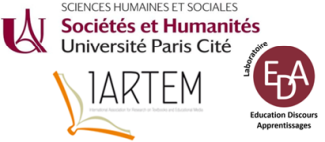Challenges and opportunities for history-geography teachers in teaching and implementing competency-based learning for the “Touristic Guide” module, in secondary education
This paper contributes to the discourse on tourism education in Albania by examining the influence of the "Touristic Guide" module on student competency development. The study focuses on upper secondary education and aims to identify the challenges and advantages of this module in the context of tourism education in Albania.
The profession of a tourist guide has significantly contributed to the growth of the Albanian tourism sector, especially during a time when tourism has become a key component of the economy. In this context, the "Touristic Guide" module is viewed as an important tool for preparing a new generation of guides who will not only lead tourist groups skillfully but also promote the values of Albanian culture and nature. This module can serve as a foundational element for the initial education of future tourist guides.
Students begin acquiring the necessary knowledge and skills to lead tourist groups as early as in upper secondary education, using basic guiding techniques. This is emphasized in the professional "Touristic Guide" module, which is integrated into the upper secondary curriculum as an elective, providing students with an early opportunity to explore and develop their guiding abilities.
The module poses a challenge for geography and history teachers in the 10th-grade classes of upper secondary education in Albania. The same teachers teach both history and geography subjects, as well as the module on "Touristic Guide". The teaching approaches and content of history and geography of Albania can be seamlessly incorporated into this module. Teachers must ensure that the module's content aligns coherently with the upper secondary curriculum guidelines and offers a rich and effective learning experience for students. Crucial to this is their preparation for practical fieldwork and the selection of suitable learning materials.
A SWAT analysis and structured interviews with teachers implementing this module serve to identify challenges and opportunities for improvement. This analysis aims to uncover obstacles in achieving student outcomes, including finding and using learning materials, as well as integrating technology into teaching.
Through this study, the goal is to contribute to the enhancement of the "Touristic Guide" module in Albanian education, preparing the groundwork for more effective teaching and deepening students' skills in the field of tourist guiding. By doing so, students are expected to be well-prepared to play a key role in the development of tourism in Albania, contributing to a richer and more conscientious environment towards natural and cultural values.
Keywords: Touristic guide, secondary education, geography and history teachers, competence-based learning, SWAT analysis

 PDF version
PDF version
